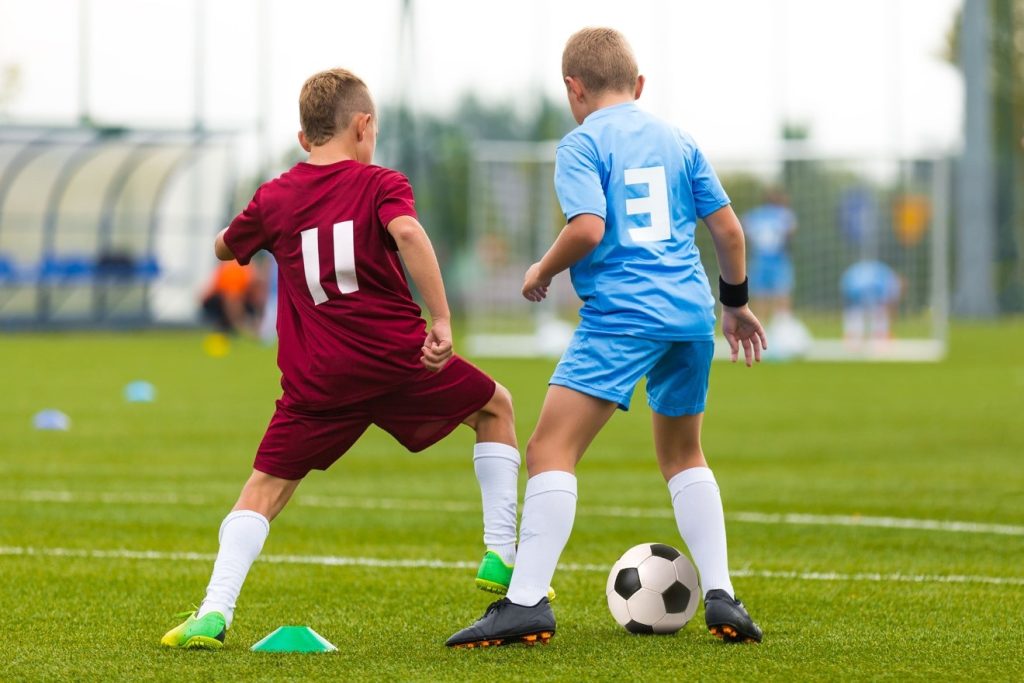Opportunities for young people to participate in sports can often act as a lifeline for them as individuals, allowing them to make connections and develop qualities that can prove essential in helping them to navigate the wider world. Taking part in activities such as football, baseball, basketball and other physical, competitive games, particularly when played outdoors, can convey a range of benefits in terms of health, mental development and social skills. Whether enjoyed at a community level or in schools and colleges, sports engage and involve, teaching valuable life lessons and helping young people grow into confident, pro-active members of society.
Physical health
The most obvious and widely understood benefit of sports participation for young people is that it helps them to stay physically healthy. Childhood obesity remains a major problem, affecting self-esteem and academic performance as well as potentially leading to life-long health problems such as diabetes and heart trouble. One reason for the prevalence of this condition is a lack of opportunities for exercise and a lack of motivation to participate.
Even if a child or young person is not in danger of being obese, regular exercise is essential and beneficial in many ways. Sports motivate young people to exercise by making the activity fun and involving them with a supportive, encouraging peer group. By keeping fit and staying in shape, they will develop healthy habits that can stay in place for a lifetime.
Better equipped
As well as providing basic aerobic exercise, playing sport can make you healthy and better equipped for life in other ways. Playing outdoors has been shown to improve eyesight, and most sports also require the development of motor skills and coordination. Similarly, young people who play sport learn the importance of teamwork and develop leadership skills as well as experience of working together to a common goal. Communication and problem-solving abilities established on the pitch or playing field can also be transferred to other areas of life, including the home, the workplace and the classroom.
Equal opportunities
Sport is one of the best ways to provide positive opportunities for young people from disadvantaged backgrounds. However, for this to be the case, there needs to be more access for those from low-income families – as well as provision for those marginalized by gender, ethnicity, sexual orientation or disability.
Organizations like the 2×2 Foundation, established by sports and media entrepreneur Nick Palazzo can help in this regard. 2×2 provides athletics scholarships for disadvantaged students, particularly young women, as well as funding replacement or repairing facilities and equipment for community and school sports programs. A former Harvard football star, Palazzo is well aware of the beneficial qualities of sports participation at a young age.
Mental resilience
Playing sports helps young people deal well with both success and failure, as they learn to win, and lose, gracefully. Sport participation boosts self-esteem and confidence, demonstrating that they can set goals and achieve them through hard work and cooperation. By forging bonds with their teammates, young people establish a support network based on trust and shared values, which will better enable them to cope with life’s problems.
There is evidence that playing sports reduces the risk of substance abuse, as well as over-reliance on alcohol and tobacco use. It gives young people an alternative to drugs and a reason to stay healthy. Sports and exercise stimulate reward pathways in the brain, generating natural mood-boosting chemicals like dopamine, while endorphins are released that combat depression.
Stress buster
In the immediate moment, sport is a great stress buster, allowing young people to work off the aggression and anxiety that can build up thanks to the pressures of school, college or domestic life. They have a healthy outlet for their emotions where they can loosen up and let go. Playing sport, you don’t always get the results you want, but this isn’t a reason to feel a failure or give up; you keep going and keep playing the game. This lesson can help young people cope with disappointment in other areas.
Better social skills
Through sports, you interact with people from different backgrounds and walks of life, but the interaction is based on what you have in common rather than your differences. This is especially true when playing at college level. Sport improves young people’s social skills, building trust and reducing alienation and loneliness. They learn to resolve conflict, give and take and look out for others.
Sportsmanship
All sports have an implicit set of values that also apply to life in general. These include following the rules, respecting authority and expecting to be treated with respect in turn. Self-discipline, a positive outlook and support for your teammates are all personal qualities that a sports player works to develop. Above all, they believe in fair play, which includes honesty and standing up for others.
Participating in sport can make a world of difference to young people, especially those from underprivileged communities. It can make the difference between a life fulfilled and a life wasted. Sport teaches you that you are valuable and that you can achieve your goals. These are important lessons to pass on.








